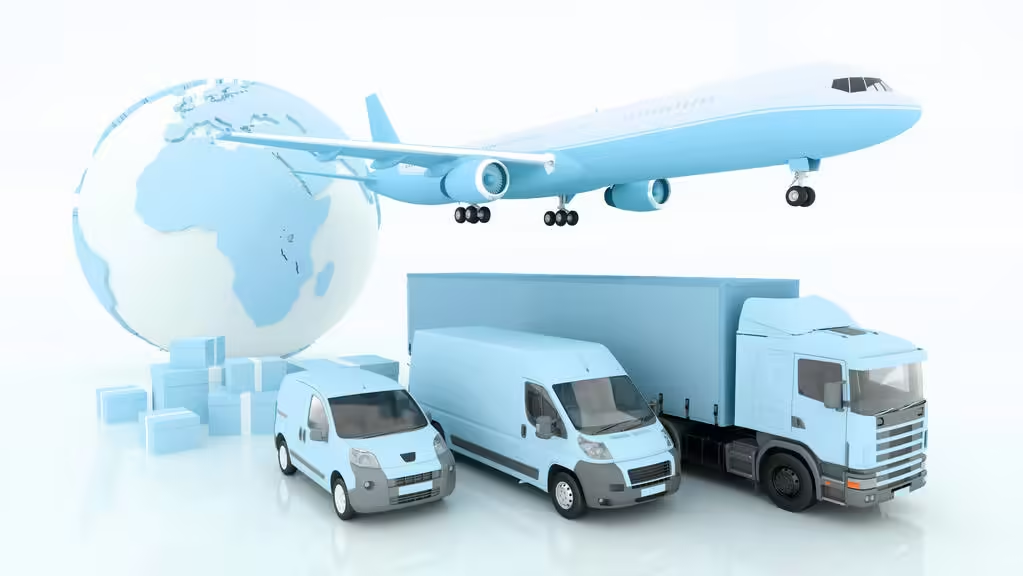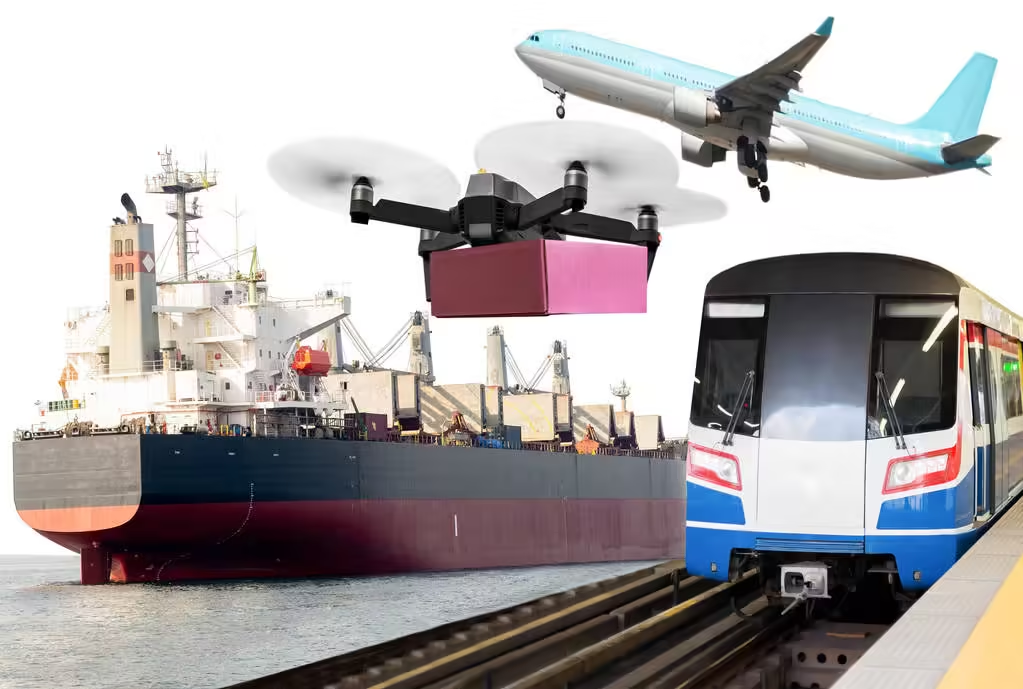What Is Express Shipping
International express delivery refers to the rapid delivery of goods between different countries or regions. It is a global express delivery service that covers the entire process from the place of shipment in one country to the place of shipment in another country, including but not limited to the collection, packaging, transportation (may involve air, sea, land or multimodal transport), customs clearance, and final delivery of goods.
The characteristics of international express delivery include:
Transnationality: Involving the laws, taxes and customs regulations of different countries, professional international logistics knowledge is required to ensure smooth customs clearance.
Complexity: Compared with domestic express delivery, the process of international express delivery is more complicated, takes longer, and may include more logistics links and higher costs.
Standardization and compliance: It is necessary to follow internationally accepted logistics standards and trade terms, such as Incoterms (International Commercial Terms), while meeting the specific requirements of various countries and regions.
Risk: Involving uncertain factors such as currency exchange rate fluctuations, political stability, and transportation risks (such as delays, losses or damage).
Multiple modes of transportation: Air, sea, land or a combination of these modes can be used to adapt to the characteristics of different goods and customer needs.
Some well-known international logistics and express companies include UPS, FedEx, DHL, EMS and Nippon Express, etc. They usually provide door-to-door services and have extensive networks and infrastructure around the world to ensure efficient and safe delivery of goods.

Advantages Of Express Shipping
The main advantages of international logistics express delivery include:
Liputan global yang luas: International express delivery companies such as DHL, UPS, FedEx and TNT cover more than 200 countries and regions around the world, ensuring that goods can be delivered to almost any corner of the world.
Fast delivery time: Under normal circumstances, international express delivery can be completed within 2-7 working days. For some key areas such as Europe, North America and parts of Asia, the delivery time may be shorter to meet time-sensitive transportation needs.
Diverse service options: Provide a variety of services including standard express delivery, economic express delivery, express service, customized logistics solutions, etc. to meet the needs and budgets of different customers.
Professional customs clearance capabilities: With a strong customs clearance team and rich experience, it can effectively handle customs procedures in cross-border transportation and reduce cargo delays.
Advanced tracking system: Provide real-time online tracking services, customers can easily track the status of goods through the Internet, improve transparency and security.
High-quality service guarantee: International express delivery companies usually provide package insurance, compensation mechanisms, etc. to ensure the safety of goods during transportation and increase customer trust.
Flexible billing method: The fee is calculated based on the actual weight or volume weight of the goods. For light and small items, there may be more favorable billing policies, such as those below 500 grams can be calculated according to the document price.
Special item transportation capacity: Although there are many restrictions, some international express companies (such as EMS) can carry sensitive items such as liquids and cosmetics, and provide specific channels to meet special transportation needs.
Discounts and price advantages: Different international express companies have different price advantages based on factors such as cargo weight and destination. For example, DHL is suitable for small goods below 21kg, FedEx has an advantage in the price range of 21-99kg, and UPS is competitive in large cargo transportation (above 100kg).
Perfect network and infrastructure: With a global transportation network, warehousing facilities and distribution teams, we ensure logistics efficiency and service quality.

Disadvantages Of Express Shipping
Higher costs: Compared with domestic express delivery or some economical international transportation methods (such as sea or postal parcels), international express delivery is usually more expensive, especially for heavy or large goods.
Volumetric weight restrictions: International express delivery takes into account the volumetric weight of the goods when calculating the cost, that is, the weight converted according to the volume, which may not be economical for light and large goods.
Strict restrictions on consigned items: For safety and regulatory reasons, there are strict restrictions on transportable items, such as dangerous goods, prohibited items, etc. cannot be sent by international express delivery.
Query information may be delayed: Although most international express companies provide online tracking services, in some cases, the website information update may be delayed, especially when the goods are passing through customs or in transit.
Restrictions on countries and regions: Although the coverage is wide, there may still be some remote or sanctioned countries and regions where services are not provided.
Complex customs clearance process: International express delivery may face complex customs clearance procedures in the destination country, which may result in additional costs, delays or require customers to provide additional documents.
Written inquiries take a long time: Once a problem occurs, such as a package being lost or damaged, the formal inquiry and claim process may need to be conducted in writing, which is usually time-consuming.
Weight limit: Some express services may have a weight limit for a single package, and if it exceeds the limit, it may need to be sub-packaged, which increases transportation costs and complexity.
Force majeure: Unforeseen factors such as natural disasters and political events may seriously affect transportation time and safety.
Environmental impact: Although fast air transport services are short in time, they have relatively high carbon emissions and impose a greater burden on the environment.
Some Uncontrollable Situations That May Occur In Express Shipping
Political and economic changes: such as trade wars, economic sanctions, policy changes, etc., may lead to tariff changes, embargoes or route adjustments.
Natural disasters: such as extreme weather (such as hurricanes, floods, blizzards), earthquakes, etc., can directly affect routes, port operations or ground transportation, causing serious delays.
Public health events: such as epidemic outbreaks, may lead to border closures, strengthened quarantine measures, labor shortages, and serious impact on logistics efficiency.
Customs delays: Customs clearance speeds vary from country to country, which may cause serious backlogs during peak seasons or policy adjustments, extending customs clearance time.
Tight aviation and shipping resources: such as flight cancellations, route reductions, ship port jumps, and container abandonment (due to insufficient space), especially during holidays or emergencies, will push up freight rates and extend transportation time.
Strikes and protests: Port workers’ strikes, traffic jams or demonstrations will affect logistics operations and cause cargo to be stranded.
Technical failures and operational errors: such as logistics information system failures, internal errors of express delivery companies (such as misclassification, missed scanning, and misoperation).
Special events at the destination: Traffic control caused by large-scale events or holidays, or sudden policy restrictions, which affect the delivery of the last kilometer of goods.
Damage and loss of goods: During long-distance transportation and multiple loading and unloading processes, goods may be damaged or lost, especially in high-risk areas or links.
Turun naik kadar pertukaran: For cross-border transactions, the instability of exchange rates may affect cost budgets and settlement processes.
Port congestion at the destination: Port congestion causes long waiting times for ships, making it difficult to unload and pick up goods, affecting logistics timeliness.
Changes in laws and regulations: Sudden changes in policies, taxes, and environmental protection requirements of the importing country may require additional compliance steps or documents, affecting logistics progress.
In the face of these uncontrollable factors, the international logistics industry usually adopts risk management strategies, such as diversified transportation solutions, purchasing transportation insurance, using advanced tracking technology, and establishing emergency response mechanisms, to mitigate potential impacts. Therefore, these all require a professional logistics company to handle these problems for you, which can solve most of your time waste and reduce your money consumption. NEW SPEED has 13 years of rich experience in express logistics services and can choose the most suitable logistics channel for you.

Cost Of Express Shipping
Billing Methods For Express Shipping
The billing methods for international logistics express delivery usually include the following core components:
Weight billing: This is the most common billing method, and the fee is calculated based on the actual weight of the goods. The fee is usually calculated in kilograms (kg) and is divided into first weight and additional weight. The first weight is the fee for the starting weight of the package, which is usually more expensive; the additional weight is the weight that exceeds the first weight, and the fee is accumulated for each additional weight (such as 0.5kg or 1kg).
Volume billing: For goods that are large in volume but light in weight, express companies may use volume weight to bill to reflect the cost of the space occupied by the goods. The calculation formula for volume weight is usually length (cm) × width (cm) × height (cm) ÷ a specific coefficient (such as 5000 or 6000), and the resulting unit is converted into kilograms (kg) or cubic meters (m³).
First weight and additional weight fees: The first weight fee is set for the base weight, while the additional weight fee is calculated on top of the first weight and in increasing weight segments.
Destination charges: Freight charges may vary in different countries and regions. The farther the distance, the higher the transportation cost, and the higher the charge.
Jenis perkhidmatan: Different service levels (such as standard service, express service, and economy service) will have different prices. Express service charges are higher, but provide faster delivery time.
Additional charges: including but not limited to fuel surcharges, remote area surcharges, special handling fees (such as overweight, oversize, and dangerous goods handling), tariffs and taxes, customs clearance fees, packaging fees, etc.
Billing unit: Generally, for parcels less than 20.5kg, each 0.5kg is a billing unit; for parcels greater than 20.5kg, each 1kg is a billing unit.
Express Shipping Fee From China To the United States
The approximate range of express delivery costs from China to the United States is as follows, but please note that these costs may vary depending on the specific company, service type, package weight, volume, destination address, and market changes:
EMS (China Post Express): The cost may be between $20-100, depending on the weight of the package and the destination. For example, the first weight fee may be around RMB 220, and the additional weight fee is about RMB 50 per 0.5kg.
International express companies (such as DHL, UPS, FedEx): The cost is generally between $50-200, and for packages of 2-5kg, the cost may range from RMB 100 to hundreds of RMB, depending on the urgency of the service and the details of the package.
Air parcel: For light and small items, the cost is about $10-50, depending on weight and size.
Economy route or sea transportation: The cost is lower, but the transportation time is longer, which may be between tens of yuan and more than 100 yuan per kilogram.
Sensitive goods: If containing liquids, live electrical products, etc., the cost may double or even higher.
Volumetric weight billing: If the package is large in size but light in weight, the courier will charge according to the volumetric weight rather than the actual weight.
Express Shipping Fee From China To Europe
The cost of express delivery from China to Europe varies depending on the courier company, service type, package weight, volume, and destination country. Here are some approximate cost ranges and information for reference:
EMS (China Post Express): According to historical data, the cost of EMS delivery to Europe increases by weight, the first weight cost may be between RMB 150-250, and the additional weight cost is about RMB 50-100 per 0.5kg. For example, the cost of sending a 2kg package to Europe may be around RMB 170, while the cost of a 5kg package is about RMB 290.
International commercial express (such as DHL, UPS, FedEx): These companies usually have higher costs, but provide faster services. The first weight cost is about RMB 200-300, and the additional weight cost is about RMB 100-200 per kilogram. The specific cost also depends on the destination country, service level, and whether there is a cooperative discount.
Other logistics service providers: For example, the service provided by Shenzhen Taijia Logistics Company costs about RMB 170 for a 2kg package to France, and about RMB 290 for a 5kg package, but this may include discounts for cooperation with first-level agents.
Volumetric weight: If the package is large in volume and light in weight, the express delivery fee will be calculated based on the volumetric weight, usually calculated as length x width x height (cm) ÷ 5000 or 6000.
Surcharges: May include fuel surcharges, remote area delivery fees, tariffs, value-added tax, special service fees (such as signing receipt, insurance), etc.
Express Shipping Fee From China To Southeast Asia
The cost of express delivery from China to Southeast Asia varies depending on the logistics company, mode of transport (air, sea, land), package weight, volume, destination country, and whether value-added services (such as express service, insurance, prepaid tariffs, etc.) are required. Here are some general guidelines:
Air express: Usually faster but relatively expensive. For small packages (for example, the first weight is 1kg or 2kg), the cost may be between RMB 100 and 300, and the additional weight fee may range from RMB 50 to 100 per 0.5kg or 1kg. The specific price depends on the courier company and the destination country.
Sea transportation: Suitable for large and heavy goods, with long transportation time but low cost. The cost is usually calculated by cubic meter (m³), and the price may range from hundreds to thousands of yuan, depending on the volume and destination port.
Land transportation: Suitable for neighboring countries, the cost is between air and sea transportation, but it is greatly affected by the route and customs clearance process.
Economic logistics services: Some logistics services offer more economical options, such as COD (cash on delivery) services from China to Southeast Asia, which may be quoted at around RMB 30 per kg, but this service may not include all countries and regions.
Adjustments during special periods: According to previous information, freight rates from China to Southeast Asia have increased significantly during the epidemic, and the costs of some routes may soar 10 times to US$1,000 to US$2,000. Although this is the sea freight cost for bulk goods, it also reflects the impact of market fluctuations.
Express Shipping Fee From China To Australia
The cost of express delivery from China to Australia varies depending on the courier company, service type, package weight and volume, etc. Here are some typical price information for reference:
EMS International Express:
The reference time to Australia is about 7-12 days.
The shipping cost of sending 2 kg of items is about RMB 149.
The shipping cost of sending 3 kg of items is about RMB 191.
The shipping cost of sending 5 kg of items is about RMB 274.
DHL International Express:
The reference time to Australia is about 3-6 days.
The shipping cost of sending 2 kg of items is about RMB 171.
The shipping cost of sending 3 kg of items is about RMB 218.
The shipping cost of sending 5 kg of items is about RMB 314.
TOLL Global Express:
The reference time to Australia is about 3-5 days.
The shipping cost of sending 2 kg of items is about RMB 134.
The shipping cost of sending 3 kg of items is about RMB 179.
The shipping cost for a 5kg item is about RMB 268.
Panli Special Line (combining the advantages of multiple companies):
The price is about RMB 25/500g, with a time range of 7-15 days.
Other logistics options:
Some logistics services offer more economical options, such as the first weight fee may be around RMB 100, and the additional weight fee is calculated per 500g or per kg, and the price may range from RMB 25 to RMB 100.
Please note that these prices are general guidelines based on public information, and the actual costs may vary depending on specific service requirements, package size, weight, item type (such as sensitive items may require special handling and increase fees), exchange rate fluctuations, and the latest policy adjustments of express companies.

How To Save International Logistics Express Freight
The main ways to save international logistics express freight include the following:
Reduce the volume of the package: Volume weight is one of the key factors affecting freight. Reduce the volume of the package by vacuum compression of clothing, disassembly of detachable parts, reasonable folding and compact packaging, and avoid charging by volume weight.
Reduce the weight of the package: Remove unnecessary packaging, use lightweight materials instead of heavy packaging, and reduce the use of fillers while ensuring safety, thereby reducing the overall weight.
Optimize packaging: Ensure that the packaging appearance is regular and avoid bulges and gaps, which helps to reduce volume weight. Use boxes of appropriate size to avoid space waste caused by oversized packaging.
Choose the right logistics channel: According to the weight, volume and destination of the package, compare the prices and services of different express companies, and choose a cost-effective logistics method, such as economic routes, dedicated line logistics, etc.
Use logistics agents: Shipping through international express dealer agents or large customer discounts often results in lower freight discounts.
Pay attention to promotional activities: Using express company coupons, discount activities or member day discounts can significantly save freight during a specific period.
Bring your own packaging materials: Avoid using the packaging boxes provided by the courier company. Preparing appropriate packaging materials yourself can reduce additional costs.
Arrange the layout of the goods reasonably: When packing, try to put large items at the bottom and small items at the top to make full use of the space and reduce the gaps.
Consolidate packages: If conditions permit, combine multiple small packages into a large package for delivery. Usually the unit price of a large package is lower than that of a small package.
Understand the destination policy: Study the tariff regulations of the destination country, plan the value of the goods reasonably, and avoid high tariffs. If you want to transport your goods safely, quickly and cheaply, you can directly contact the professional international logistics freight forwarder: NEW SPEED. Years of rich experience are worth every penny of your efforts!
Warehouse Address
Logistics Exhibition

